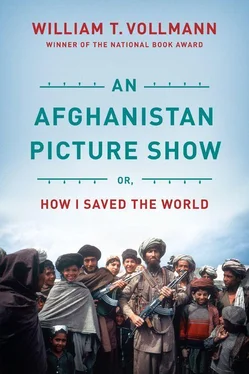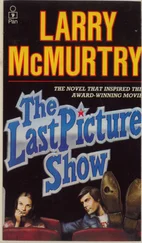STATEMENT OF THE RELIABLE SOURCE (continued) (1982)
“Did the Mujahideen groups accept and trust you and President Bhutto?” asked the Young Man.
“They basically trusted us. And that is why they remained with us from when they first came, in October 1973. jI would say that there were various periods when we were more or less happy or unhappy with each other in the sense that from October ’73 until about November ’74 they were very happy with us because I was here, and I was looking after them.” —The Reliable Source sighed. — “Then, fortunately or unfortunately, my successor who came, he thought he was a soldier, and should not dabble in this political business. So he then deprived us … He, let us say, went slow on it. It was a question of policy. It was not a question of personality. The result was that there was a little relaxation in the manner of support.”
“It must have been a very tricky job for you,” the Young Man said.
“Why?”
“Well, you must have been worried about Mr. Daoud.”
“No, at that time they were playing their games with us. So the fact is, when one side is trying to play a game according to its own rules, then you also set your own set of rules. We lost Habib Raman, but we brought a very major change to Daoud’s mind. He was compelled to come and talk with us. kHe was compelled also to understand the nature of those changes, and that is why he requested us, in 1977, ‘Please postpone your election on the elder tribal franchise basis, in the tribal area, for one year.’ He said, ‘You give me some time, so I can bring about a certain amount of reform, so that otherwise, they would rebel against me.’ Because you could see people feeling the change over here.”
How desperate was Daoud by the time he talked with Bhutto and the Reliable Source? Did he have any suspicion of what his end, what his country’s end, was going to be? And did the Reliable Source feel less enmity toward him during that meeting, simply by virtue of his precarious position? For however much he disliked Daoud, I imagine that he cared for Taraki somewhat less.
“Now what was the reaction in Afghanistan and in those political groups when Bhutto was replaced by General Zia?” asked the Young Man.
“You see, that is when the split amongst the group came. At the time when they were looked after, they were undoubtedly controlled in a certain manner, in the sense that they remained in one group.”
“What form did that control take?”
“By— understanding ,” said the Reliable Source. “They understood and we understood that we and they had a common program, with the result that we were supporting them to the extent that they required. And they understood, too, that we were using each man according to his ability. Now, this fellow Gulbuddin, he is a militant; Khalis is militant; Nabi l … they are all militant. Rabbani, on the other hand, he is one who would like to carry it out through a program of education. He was a preacher in Scandinavian countries. He came to us toward the end of ’76.† So we told him that he was doing an adequate job in Scandinavia, and he should continue over there; no need for him at the moment, because all the other groups were here, and they were united … But they were all agreed on wanting Zaher Shah back. That is why their representatives went and met with him at end of ’76, early ’77, and he agreed to come and lead them, because they also needed a central leadership.”
“So why isn’t Zaher Shah here coordinating things now?”
“Ah, that is because General Zia got cold feet, I suppose.”
“You think all the major factions still want Zaher Shah?”
“Not today. You see, Khomeini had come by then, and that was one reason; and secondly I told you that after July ’77 mthey became a rabble; they became a disorganized group for lack of support. Everyone started looking around. Someone went to Kuwait, someone went to Saudi Arabia and so on, because they were not getting the support they wanted or desired within Pakistan.”
“So where are they getting their support now?” asked the Young Man.
“Now? From the Americans.”
“From the C.I.A.?”
“Yes.”
“General Zia isn’t—?”
“That — that is, my own impression is that, because, uh, there are so many things one cannot say directly,” cried the Reliable Source. “If you turn this tape recorder off, I will tell you …”
The recorder was shut off for ten minutes. n
A SOVIET AMPLIFICATION
“There is an obvious connection,” says the Tass statement on Afghanistan of December 1979, “between visits of American emissaries to Pakistan, their visits to some areas in Afghanistan and the operations of the rebel forces. It is not a chance coincidence that the mutiny in Herat to which Afghan reaction Washington and Peking were establishing special significance was started immediately after one of the ringleaders of Afghan counterrevolutionaries was received at the U.S. Department of State. There is data about the attempts of U.S. representatives to get from the Pakistani leadership a consent to still wider use of Pakistani territory for sending armed groups into Afghanistan. Even wider participation in aggressive actions against Afghanistan was being demanded of Pakistan.
“There is no need for special insight to be able to see through the motives of the United States’s actions. There are figures in Washington who persistently look for replacements for the positions which were lost as a result of the fall of the Shah’s regime in Iran. Cracks appeared in the notorious ‘strategic arc’ that Americans have been building for decades close to the southern borders of the Soviet Union, and in order to mend these cracks it was sought to bring under the Afghan people and also peoples of other regions.
“… External imperialist reaction is working constantly to undermine the organs of state power and disorganize the ranks of the People’s Democratic Party of Afghanistan.”
I imagine that every word of this is true.
A THOUGHT (1987)
Well, perhaps it was no wonder that almost every Afghan or Pakistani I talked to believed that I was some omnipotent C.I.A. manipulator; —that almost every Afghan or Pakistani thought that he was controlled;—that in Peshawar they kept saying that a secret deal had been made whereby the Soviets would be allowed to hold on to Afghanistan and the Americans were to take over the Middle East. — What would these people have thought if they could have been, say, in San Francisco on February 12, 1987 (a rainy day), watching an anti-Asian rally in front of the Korean Embassy, the workmen with their heavy slickers, the good old boys twirling unbrellas, waving American flags and yelling, “Flag! Flag! Flag! Flag!” o—The young men looked serious and stupid. The older ones were smiling. Everyone was tremendously excited. The iron-workers’ union was there, saying that Korea was exporting unemployment. —“GET THE GOOKS OUT OF AMERICA!” —For the Americans also believed that they were controlled.
And yet the situation was not entirely symmetrical. For when the Young Man learned that so many Mujahideen groups had come into play long before the final change of government, as maliciously twiddling and poking fingers of Pakistani Realpolitik , he felt a deep sense of shock — and yet he ought to have known how matters stood as soon as he saw the Brigadier’s letter!
…that after two months of the agreement we will be helped with the following: …40 Powerful explosive Bumbs…
Somehow when his own government did it, it did not seem either surprising or bad. Why was this?
Читать дальше












